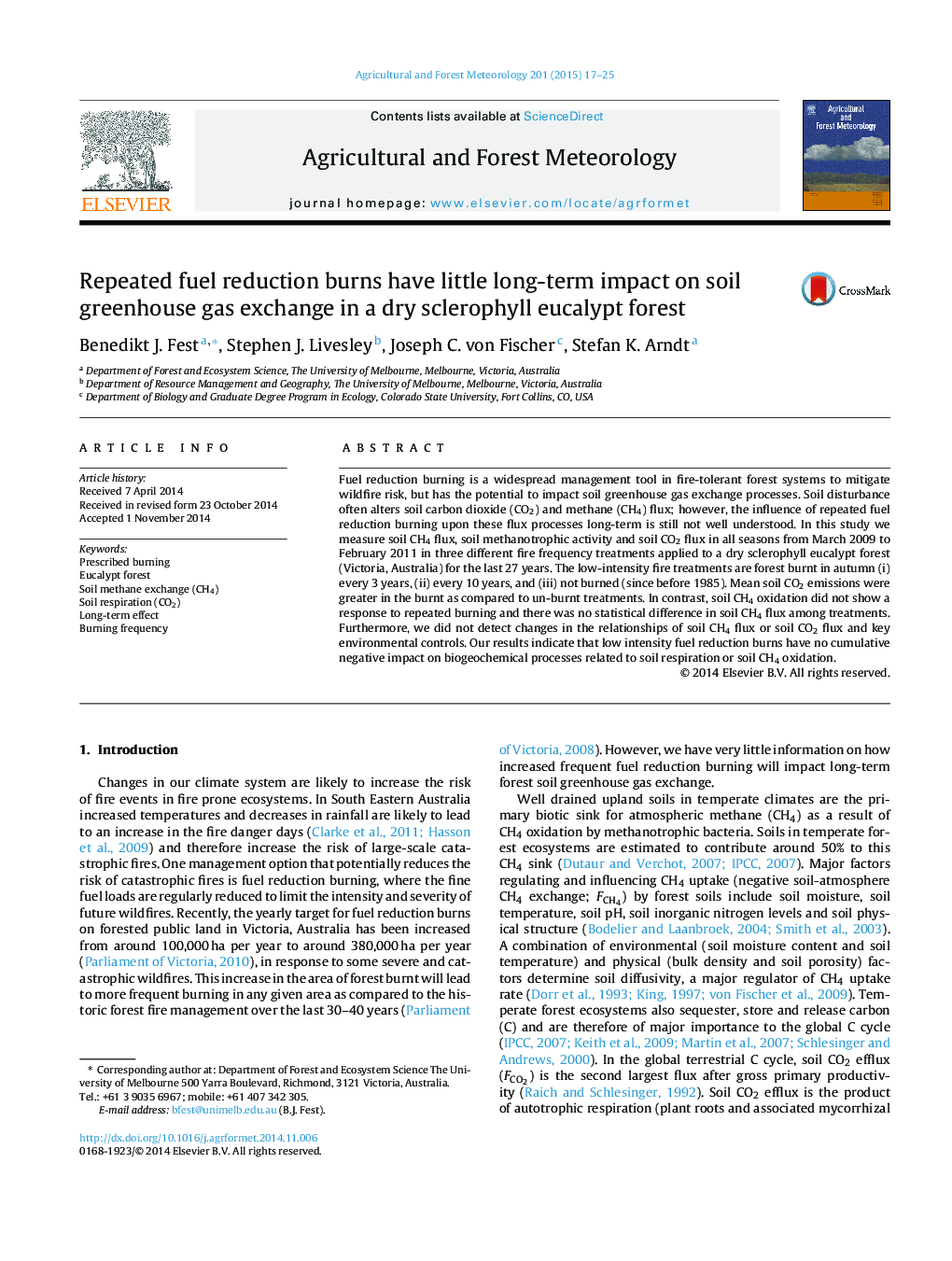| کد مقاله | کد نشریه | سال انتشار | مقاله انگلیسی | نسخه تمام متن |
|---|---|---|---|---|
| 6537386 | 158335 | 2015 | 9 صفحه PDF | دانلود رایگان |
عنوان انگلیسی مقاله ISI
Repeated fuel reduction burns have little long-term impact on soil greenhouse gas exchange in a dry sclerophyll eucalypt forest
ترجمه فارسی عنوان
سوختگی مجدد سوخت کاهش چندانی در تأثیر تبخیر گازهای گلخانه ای خاک در یک جنگل زراعی اسکلروفیل خشک ندارد
دانلود مقاله + سفارش ترجمه
دانلود مقاله ISI انگلیسی
رایگان برای ایرانیان
کلمات کلیدی
موضوعات مرتبط
مهندسی و علوم پایه
علوم زمین و سیارات
علم هواشناسی
چکیده انگلیسی
Fuel reduction burning is a widespread management tool in fire-tolerant forest systems to mitigate wildfire risk, but has the potential to impact soil greenhouse gas exchange processes. Soil disturbance often alters soil carbon dioxide (CO2) and methane (CH4) flux; however, the influence of repeated fuel reduction burning upon these flux processes long-term is still not well understood. In this study we measure soil CH4 flux, soil methanotrophic activity and soil CO2 flux in all seasons from March 2009 to February 2011 in three different fire frequency treatments applied to a dry sclerophyll eucalypt forest (Victoria, Australia) for the last 27 years. The low-intensity fire treatments are forest burnt in autumn (i) every 3 years, (ii) every 10 years, and (iii) not burned (since before 1985). Mean soil CO2 emissions were greater in the burnt as compared to un-burnt treatments. In contrast, soil CH4 oxidation did not show a response to repeated burning and there was no statistical difference in soil CH4 flux among treatments. Furthermore, we did not detect changes in the relationships of soil CH4 flux or soil CO2 flux and key environmental controls. Our results indicate that low intensity fuel reduction burns have no cumulative negative impact on biogeochemical processes related to soil respiration or soil CH4 oxidation.
ناشر
Database: Elsevier - ScienceDirect (ساینس دایرکت)
Journal: Agricultural and Forest Meteorology - Volume 201, 15 February 2015, Pages 17-25
Journal: Agricultural and Forest Meteorology - Volume 201, 15 February 2015, Pages 17-25
نویسندگان
Benedikt J. Fest, Stephen J. Livesley, Joseph C. von Fischer, Stefan K. Arndt,
